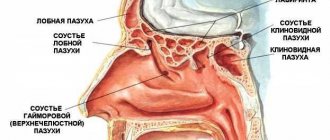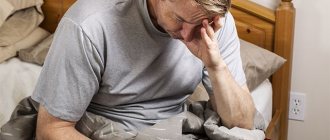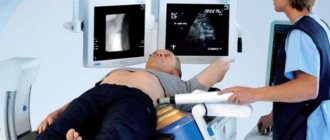Frequent urination in women is a common problem.
Fighting it can take a lot of time and effort from the fair sex.
Moreover, as doctors note, deviations from the norm are not always caused by pathological reasons.
There are also a number of completely physiological factors that can provoke changes in the volume and frequency of urination.
What are the main reasons for frequent urination in women, patients want to know, and what is generally considered a pathology, and what is a variant of the norm.
What additional symptoms may be accompanied by the disease, and how to make a correct diagnosis before starting therapy?
What is considered a deviation from normal urination?
Very frequent urination in women is a rather relative concept.
Many representatives of the fair sex forget about this.
People generally have a rather vague idea of what frequency of bladder emptying is considered frequent and what volume is considered large.
It is worth understanding these concepts before talking about pathology.
Urine formation occurs in the kidneys.
First, primary urine is formed, which contains a lot of water and valuable electrolytes.
Then it undergoes repeated filtration, concentrates, and only then is removed from the human body.
About 180 liters of primary urine are produced per day, but no more than 0.5-1 liters of secondary urine.
In order to allocate the specified volume, each woman needs an individual number of trips to the toilet.
On average, visiting the restroom 3 to 9 times a day is considered the norm.
It is worth remembering that night urination should either be completely absent, or repeated no more than once a night.
Naturally, it is not worth talking about diseases immediately when deviations from the norm appear.
After all, a lot depends on a woman’s lifestyle, her drinking regime and diet, as well as a number of other features.
However, if women have a frequent urge to urinate or trips to the toilet at night have become too frequent, this is a serious reason to be wary.
What is nocturia
Increased urination at night, called nocturia, is a symptom whose occurrence may indicate certain disease processes in the body. During sleep, our kidneys physiologically produce less urine, and with nocturia the patient feels at least twice the need to urinate at night.
It is necessary to distinguish pollakiuria from polyuria. Pollakiuria means repeated urination (even more than 8 times a day), while polyuria means passing more than 2.5 liters of urine per day.
The causes of this disease can be very different, it can be influenced, for example, by circulatory failure, abnormalities of the urinary system or neurological disorders. For more than half of patients, the need to urinate frequently at night is the main reason for lack of sleep. This leads to problems throughout the day, especially when concentration and productivity at work decrease.
Non-pathological causes of frequent urination
Doctors identify a number of reasons that are not pathological conditions, but under the influence of which the number of trips to the toilet may increase.
The main feature of these conditions is that urination occurs without pain.
Although it is frequent, it does not cause discomfort to the woman.
Among these conditions:
- the period of taking diuretics, which force the urinary system to work more actively, which may increase both the frequency of trips to the toilet and the volume of urine
- period of pregnancy, when the enlarged uterus puts pressure on the bladder, reducing its volume and, accordingly, its ability to accumulate fluid
- a diet consisting of pickles, smoked meats, and spicy dishes can affect urine output, as it irritates the bladder receptors
- drinking large quantities of coffee and other caffeinated drinks, as well as beer
- cooling of the lower extremities often entails a desire to visit the toilet, and this is a normal reaction of the body to hypothermia
- the period of menstruation also entails more frequent trips to the toilet, since to renew the endometrium the body retains fluid and then is forced to actively remove it
About urination during menopause
Frequent little urination in older women often signals the onset of menopause.
Contrary to popular belief, menopause is a normal state of the body, and not a pathology.
Therefore, it is impossible to include it in the group of diseases.
However, the changes that occur in the female body at this time are very specific.
The basis of all changes is a decrease in estrogen production.
Everyone knows that this is the main sex hormone in the female body.
It is responsible not only for reproductive functions, but also for controlling the tone of the urethra and vagina.
Also, thanks to its effect, adequate blood supply to these organs is ensured.
As soon as there is little estrogen in a woman’s body, the tone and blood supply to the designated organs decrease.
The result is quite predictable: the desire to go to the toilet more often develops.
Some representatives of the fair sex begin to suffer from a problem such as age-related urinary incontinence.
After 50, for a significant number of women the issue becomes especially acute.
Sometimes it is possible to achieve at least some positive dynamics only with the help of operational approaches.
Symptoms
Nocturia itself is part of a symptom complex of many diseases. The main sign of the presence of pathology is that the patient urinates mainly at night rather than during the day (the predominance of nighttime diuresis over daytime).
In this case, the patient experiences:
- increased irritability;
- fatigue and low performance during the day;
- insomnia, the cause of which is the frequent need to go to the toilet at night;
- depression;
- anxious and sensitive sleep;
- memory problems;
- labile emotional state.
Frequent urination in women: possible diseases
The reasons for the frequent urge to urinate in women can also lie in various pathologies.
They must not only be diagnosed promptly, but also treated.
Often a feature of pathological changes in the body is the appearance of complaints of pain in the lower abdomen.
It intensifies during the act of emptying the bladder or, alternatively, appears immediately after it.
As doctors note, all pathological causes can be divided into several large groups.
Nocturia: 13 reasons for night visits to the toilet
If you notice that you are starting to wake up at night due to the urge to urinate, you naturally have a question: why exactly is this happening? What has changed or perhaps been disrupted in the functioning of the excretory system?
A persistent tendency to awaken at night, associated with an imperative need to go to the toilet, is called nocturia (this spelling and pronunciation is traditional for domestic medicine; in the West, the term “nocturia” is usually used - Note Lakhta Clinic ). And of course, nocturia is not without cause, so ignoring this trend, to put it mildly, is not recommended.
The bad news is that there are many potential causes and factors that can lead to nocturia, ranging from ingrained habits to underlying serious conditions that require evaluation and treatment. Good news: we will now try to figure out, with the help of experts, the main and most common reasons that force you to interrupt your night's sleep for an urgent visit to the toilet.
What causes nocturia?
According to the American Urological Association (AUA), nocturia can be based on very different (in terms of etiopathogenesis) conditions, processes and diseases. However, first of all, it should be noted that nocturia itself is not a disease. This is always just a symptom, a sign of some more general pathology. In addition, it is important to emphasize the difference between nocturia and another urological symptom with a similar sound - polyuria. Polyuria means that the body produces an abnormally large amount of urine, while nocturia implies normal volumes of urination, but the urine is either not completely eliminated, or false urges occur when the bladder is empty.
Some pathological conditions and other causes that most often cause nocturia are discussed below.
Prostate enlargement
For many men, the prostate gland begins to increase in size with age. In this case, the urine outflow paths are partially compressed or blocked, which makes it difficult to completely empty the bladder. According to the Mayo Clinic, symptoms of the so-called. benign prostatic hyperplasia (prostate adenoma) is noticed by approximately every third man who has reached the age of 60. Moreover, nocturia is one of the most common and well-known symptoms of an enlarged prostate, which occurs in almost all cases. It is the inability to completely empty the bladder that makes a person feel the urge to urinate more often and more acutely, including during night sleep.
Bladder dysfunction
Bladder problems can occur in both men and women, although the causes are usually different. In the context of nocturia, this may be a phenomenon of "urinary frequency due to decreased critical bladder volume," says Mark Ellerkmann, MD, director of the Urogynecology Center at Mercy Medical Center in Baltimore. This condition can develop, in particular, due to age-related stretching of the bladder walls, which can no longer hold the usual amount of urine, due to the aforementioned prostatic hyperplasia, as well as due to a special syndrome known as overactive bladder.
Diabetes
Both nocturia and polyuria are often present in the clinical picture of diabetes, and it is important to understand the differences between the two conditions.
Polyuria is a classic symptom of diabetes. In the uncontrolled course of this serious disease (i.e., in the body of patients who remain without observation and adequate therapeutic support), an abnormally large amount of urine is produced, primarily due to the high concentration of glucose in the blood. But in cases of nocturia, the volume of urine produced is not increased; It’s just very inopportune – that is, at night while sleeping – that the urge to urinate arises.
In patients with diabetes, nocturia is usually caused by a combination of two factors, namely edema and diabetic neuropathy. In 2021, an article was published in the special periodical Journal of Wound, Ostomy, and Continence Nursing, where a significant increase in nighttime urination in older women with diabetes (compared to younger categories) is considered as a consequence of these two reasons acting simultaneously.
See materials on the Lakhta Clinic website:
Diabetes
Diabetic neuropathy
Edema (swelling)
According to Dr. M. Ellerkmann, nocturia can also be caused by swelling, which is often observed in patients with cardiovascular disease and/or chronic heart failure. Fluid retention in tissues can lead to swelling in any part of the body, but in this case, the legs and ankles are most often swollen, which causes frequent urination.
“When such patients lie down, the body tries to return excess fluid back into the circulatory system, whereas the function of the kidneys is to eliminate this excess,” explains M. Ellerkmann, specifying that the cycle of transport of excess fluid through the kidneys can lead to increased urination, including including at night.
Interstitial cystitis
According to the Centers for Disease Control and Prevention (CDC), interstitial cystitis is a chronic, non-infectious inflammation of the bladder that is very uncomfortable and is often called “sore bladder syndrome.” Interstitial cystitis is often detected during examination, the primary basis for which is the patient’s complaints of nocturia.
Pregnancy
Due to the rapid enlargement of the uterus and, as a consequence, increasing pressure on surrounding organs, pregnant women often complain that they want to go to the toilet almost constantly. Thus, the main (but not the only possible) cause of nocturia during pregnancy is mechanical compression of the bladder, which does not allow it to hold normal volumes of urine.
Neurobiological disorders
Physical damage to the spinal cord and other structures of the central nervous system can also cause nocturia, says S. Adam Ramin, MD, medical director of the Urology Cancer Center in Los Angeles. There are many known such conditions: spinal injuries, Parkinson's disease, strokes, etc. In particular, studies from 2012-19 confirmed that urinary incontinence and dysfunction of the lower urinary tract are one of the typical symptoms in the first 3-6 months after a stroke.
Infections
Widespread urinary tract infections often cause a sudden, strong urge to urinate, Mayo Clinic experts say. If you have such an infection, such urges will most likely occur during the daytime, but even if this remains a purely nighttime problem for someone, attention should be paid to it, especially if nocturia is combined with other symptoms of a urogenital infection, such as a feeling burning sensation when urinating, fever, pelvic pain, tenderness in the lower abdomen.
Age and ethnic factors
There are some risk factors for nocturia that are completely uncontrollable. In particular, age: According to Dr. M. Ellerkmann, an abnormally large volume of urination at night may be due to a decrease in the level of the antidiuretic hormone arginine vasopressin (AVP). “Normally, blood plasma at night contains an increased level of AVP, which, accordingly, inhibits urine production,” says the expert. “However, in elderly patients, the level of nocturnal secretion of AVP may be insufficient, which leads to age-related nocturia.”
According to statistics from the National Association for the Fight against Incontinence (urinary incontinence - Note from Lakhta Clinic ), the majority of people suffering from nocturia are over the age of 60 years.
Ethnicity. Nocturia is more common in black and Hispanic people, especially males. However, Dr. S.A. Ramin doubts that the reason here lies in any genetic or hereditary predisposition; rather, socioeconomic and even cultural factors are at play in many of these cases. “Black and Hispanic men tend to have less access to quality medical care and are less likely to see a doctor with these types of complaints,” explains the specialist. “In this way, the primary problems progress and the symptoms become more pronounced.”
Medicines
There are a number of medications that can cause nocturia. The most obvious culprit here is diuretics (water pills), but the AUA reports that some heart medications and mood stabilizers may also increase nocturnal bladder filling volumes. It is very likely that it is impossible or highly undesirable for medical reasons to stop taking such drugs in your individual case, but in many cases it is possible, in consultation with your doctor, to adjust the time of dosing so that the last dose does not fall in the late evening.
Sleep disorders
If you wake up several times a night because you urgently need to go to the toilet, then it is quite logical to assume that there are problems in the urogenital (genitourinary) system. However, in reality, the cause may be sleep disturbances as such.
“Obstructive sleep apnea can cause nocturnal polyuria through the release of atrial natriuretic peptide (ANP), a hormone that can stimulate the kidneys to produce increased volumes of urine,” says Mark Ellerkmann. – Sometimes patients wake up due to dyssomnia or restless legs syndrome, and, already awake, feel the need to empty the bladder. But it’s actually the sleep disorder that wakes them up, not the bladder.”
Psychological reasons
According to Dr. S.A. Ramin, in some cases, the cause of nocturia is anxiety, expressed in the degree of an abnormal state of mind.
“Some patients with high anxiety have chest pain or discomfort, others have increased bowel movements or develop diarrhea, but many anxious people complain of increased urinary frequency and urgency,” he says. “This can happen both during the day and at night, meaning a person with increased anxiety can definitely develop nocturia, even if there are no problems with the bladder or prostate gland.”
Mental illnesses such as depression or obsessive-compulsive disorder may also present in a similar way: Patients may feel like they “have to” go to the toilet every time they wake up at night, especially if they are sleeping lightly or have disturbed sleep phases. In such cases, a person goes to the toilet not because of the urge to urinate, but simply because he is used to doing it every time he wakes up.
Lifestyle Features
We assume that you are not in the habit of regularly drinking two liters of water before going to bed... and if you are, then it is better to give up this habit. The cause of nocturia may be simple: natural overflow of the bladder due to excessive amounts of liquid drunk at night. According to AUA recommendations, it is advisable to limit yourself two to three hours before bedtime, and it matters not only how much you drink, but also what exactly you drink: some drinks, such as alcohol or coffee, are themselves diuretics, that is, it is this factor that can increase nocturnal diuresis.
Based on materials from the Health website
Pathologies of the urinary system
Discomfort that occurs with diseases of the urinary system is the most common in medical practice, as doctors note.
Moreover, it can even be caused not by one, but by several diseases at once.
Among them:
- cystitis is a pathology associated with inflammatory processes in the bladder itself, to which the body predictably reacts with pain, increased urination and other unpleasant symptoms
- Urethritis is another common problem, which often acts not so much as an independent disease, but as a symptom, but can cause a lot of inconvenience to the patient, since the inflammatory process in this case is localized in the urethra
- Frequent and copious urination in women may indicate pyelonephritis, which affects the renal pyelocaliceal system (in this case, other alarming symptoms often appear, indicating pathology)
- urolithiasis may be another reason for the appearance of specific complaints that force the fair sex to seek help from a doctor
It is also worth considering that some women develop more rare pathologies.
For example, a doctor in practice may encounter bladder hyperreactivity.
With it, the organ reacts sensitively to even the slightest changes.
Also, on the contrary, atony of the organ, due to which it is unable to retain urine inside itself.
Any of the pathologies requires not only timely diagnosis, but also full treatment.
Diagnostics
Diagnostic measures are carried out by a urologist. According to indications, an andrologist, gynecologist, endocrinologist and other specialists are involved in the examination. If mental disorders are suspected, patients are referred for consultation to a psychotherapist or psychiatrist. During the conversation, the specialist determines the time of occurrence and severity of frequent urination, the presence of other manifestations indicating the nature of the disease. Patients are asked to fill out a special diary.
During the general examination, the doctor identifies areas of pain, conducts special tests (for example, checking Pasternatsky’s symptom), assesses the general condition of the body, nutritional level, etc. Women are advised to examine them in a chair; men with suspected andrological pathology are advised to undergo a digital examination of the prostate. For neurogenic disorders, a neurological examination is performed. The additional examination plan includes procedures such as:
- Ultrasonography.
When performing an ultrasound of the bladder, corresponding changes in the wall of the organ are detected. Ultrasound of the prostate allows you to confirm the presence of inflammation and space-occupying formations. According to pelvic ultrasound data, women get a comprehensive picture of the state of the reproductive system. Ultrasound of the kidneys reveals stones, structural abnormalities, and inflammatory processes. - Radiation techniques.
For kidney diseases, survey or excretory urography is indicated. In cases of renal dysfunction, contrast studies are performed with caution. The images reveal enlargement or deformation of the kidney, stones, and tumors. One of the most revealing methods of examination for urolithiasis is a CT scan of the kidneys. For diverticula, retrograde urography is performed. - Endoscopic methods.
Cystoscopy allows you to determine the nature of inflammation in cystitis, confirm sclerosis of the cervix, wrinkling or the presence of ureterocele, and exclude tumor processes. During urethroscopy, diverticula are detected. Patients with gynecological diseases sometimes require hysterosalpingoscopy. During endoscopic examinations, a biopsy sample can be taken. - Lab tests.
Urine tests can reveal leukocyturia, bacteriuria, and proteinuria. To determine the nature of the microflora, microscopy of smears and discharge and inoculation on nutrient media are performed. STIs are confirmed by ELISA, PCR. For prostate diseases, PSA levels are assessed. In diabetes mellitus, glucose, insulin and C-peptide levels are examined. For diabetes insipidus, an ADH test is done.
Frequent urination due to diseases of the genital organs
Frequent urination of women during the day may indicate not only pathologies of the urinary system, but also problems in the sexual sphere.
As doctors note, there may be several reasons for the formation of a symptom.
First of all, the doctor will always rule out fibroids.
Myoma is a benign neoplasm that develops in the uterine cavity.
In this case, the tumor can imitate pregnancy, putting pressure on the bladder, mechanically reducing its volume.
The result is predictable: as during pregnancy, a woman will visit the toilet more often than normal.
In addition to uterine fibroids, it is always worth excluding genital prolapse.
This pathology is especially common among representatives of the fair sex who have already gone through the process of childbirth.
Naturally, if the uterus prolapses, other structures located in the pelvis are displaced and may be compressed.
The bladder in this case is no exception.
The result may be the need to go to the toilet more often than normal.
It is important to remember that when the genital organs prolapse, women may urinate with blood.
Since organs can be damaged due to their normally atypical location.
Consequences of going to the toilet at night
Night urination in itself significantly impairs quality of life. Constant interruption of sleep causes fatigue and irritation, and reduces performance.
In addition, if left untreated, complications occur and the disease worsens. For example, prostate adenoma can degenerate into a cancerous tumor. And prostatitis can lead to male infertility.
Self-medication in this case is completely excluded. It can only aggravate the situation and negatively affect the functioning of internal organs. Therefore, if you have regular urges at night, you should be examined by a urologist-andrologist and undergo the necessary tests.
Frequent urination due to endocrinological pathology
The reasons may lie in endocrinological pathologies.
Doctors, like patients, often forget about this group of ailments, immediately dismissing them from the diagnostic search.
And this, meanwhile, is a serious mistake!
First of all, you should pay attention to excluding diabetes mellitus.
With this pathology, due to a lack of insulin, the body is forced to actively remove glucose from the body on its own.
It is the kidneys that do this first.
Glucose pulls water with it, which leads to the need to go to the toilet more often and urinate in larger volumes than usual.
It is important to remember that pain is not typical for diabetes.
Additionally, it is important to exclude diabetes insipidus.
In this case, the problem lies not in the disruption of glucose and insulin metabolism, but in the incorrect functioning of the hypothalamic-pituitary system.
Diabetes insipidus is characterized primarily by increased fluid intake.
As a result, active urination, which increases both in frequency and volume.
Additionally, it is worth assessing the function of the adrenal glands and the activity of the thyroid gland.
These endocrine organs may also influence the frequency of toilet visits in women.
Types of nocturia
Nocturia can be permanent (it is observed in pathologies of internal organs and endocrine glands) and temporary - it occurs in various types of general diseases.
Doctors also identify intermittent nocturia, in which daily diuresis does not decrease. Its appearance is associated with diseases such as pernicious anemia, liver cirrhosis, thyroid pathologies, prostate adenoma, and diabetes insipidus. True nocturia, accompanied by cessation of physiological urination during the day, deserves special attention.
STDs: a common factor in frequent urination
Often, complaints of a weak stream and frequent urination in women indicate the development of one of the infections that is spread sexually.
For example, it could be mycoplasmosis, trichomoniasis, chlamydia, ureaplasmosis or another pathology from this group.
Representatives of the fair sex often do not understand how STDs and the urinary system are related to each other.
In practice everything is very simple.
The close proximity of these organs plays a cruel joke, leading to the appearance of unpleasant symptoms in one system when the other is affected.
The answer to the question of which STDs cause unpleasant symptoms is quite obvious.
Primarily these are bacterial infections.
However, with viral pathologies, the formation of complaints is also quite possible.
Moreover, if the kidneys hurt with frequent urination in women against the background of an existing STD, this is a reason to think that the infectious process has penetrated deep into the body.
And he began to destroy not only the genitals, but also other systems.
Doctors rarely associate nocturia with obstructive sleep apnea.
According to the ICS - International Society for Urinary Incontinence - from 39% to 77% of people over 40 years of age complain of frequent urination at night, while 2/3 of them suffer from obstructive sleep apnea of varying severity. In many foreign clinics, consultation with a somnologist is included in the standard protocol for mandatory examination of patients who complain of frequent urination at night.
In our country, unfortunately, turning to a somnologist on the referral of other specialists is extremely rare, even if the patient himself is actively interested in the question of how to deal with snoring. In addition, when patients complain of frequent urination at night, doctors of therapeutic specialties, in search of its cause, often make the same mistake - they limit themselves to suspecting diseases of the internal organs. As a result, patients with nocturnal breathing disorders remain underexamined, and obstructive sleep apnea, as a possible cause of nocturia, falls out of the field of view of specialists.
With nocturia, not only the quality of sleep suffers, but also the quality of life.
If the patient literally has “nothing to catch on” and no disease is confirmed, doctors recommend that he “observe”, “limit the amount of fluid consumed”, “go on a diet” or give other general and, unfortunately, useless advice. However, most patients with nocturia, especially men over 50, eventually see a urologist and are treated for supposed chronic prostatitis or prostate adenoma. But, despite taking medications designed to relieve such patients from frequent urination, they continue to regularly visit the toilet at night.
Further searches for the origin and attempts to treat nocturia often stop at this stage: either doctors shrug their shoulders, saying, “it’s strange that medications don’t help, we don’t know what to think,” or the patient himself gets tired of fruitless attempts to solve his problem and begins to adapt to this unpleasant symptom and this lifestyle. Only a few patients continue to search for the origin of frequent nighttime urination until, often by accident, they come to the attention of a competent specialist who asks how a person sleeps, whether he snores in his sleep, or whether he has daytime sleepiness. And then he will refer you for a consultation to a somnologist. And then the question “how to deal with frequent urination at night” transforms into the question “how to deal with snoring.”
Frequent urination and possible additional symptoms
It is quite easy to understand what type of urination is considered frequent in women.
However, it is also important to consider additional symptoms.
They may appear in a representative of the fair sex in one case or another.
After all, symptoms allow the doctor to guess the nature of the disease and outline the circle of diagnostic search.
For example, as doctors note, during ovulation there will be no additional symptoms that cause discomfort to the patient.
She will only complain about frequent visits to the toilet.
With pyelonephritis the situation is often different.
Problems with emptying the bladder and a temperature of 37 in women often indicate a viral or bacterial infection.
It is also worth considering the presence of symptoms such as discharge of blood and pus from the urethra.
These are often quite alarming signs that require the doctor to carefully study the situation and carefully monitor it.
It is also worth considering that representatives of the fair sex may complain of general weakness, malaise, and a feeling of decreased performance.
Another common complaint is the feeling that the bladder is not completely emptied.
It is worth remembering that nausea and frequent urination in women is a possible combination, and it does not necessarily indicate pathology.
On the contrary, it may be a sign of pregnancy.
CPAP as a treatment for frequent nighttime urination
Of course, nocturia often accompanies diseases of the urinary system. But if the nature of frequent night urination is not entirely clear or the prescribed treatment does not help, then such a patient should consult a somnologist and, if necessary, undergo a special examination to find out whether he has obstructive sleep apnea and how severe the existing breathing disorders are.
If the diagnosis of obstructive sleep apnea syndrome is confirmed, the doctor prescribes the optimal treatment in each specific case. For patients with severe sleep apnea, and it is these patients who most often complain of nocturia, this is CPAP therapy - sleep with a special breathing device that ensures normal airway patency. Having gotten rid of snoring and obstructive sleep apnea, a person stops waking up at night, his sleep becomes sound and deep, and many associated problems, including frequent night urination, disappear without a trace.
CPAP not only relieves snoring and apnea, but also prevents regular nighttime “walks” to the toilet
If you snore and at the same time get up to go to the toilet more than once at night, then it is possible that the reason lies precisely in obstructive apnea. Consult a somnologist, and then undergo a special examination and, if necessary, treatment. This is the only way you can eliminate snoring and restore free breathing during the night's rest, which means you will get rid of debilitating night urination and other consequences of obstructive sleep apnea, you will wake up in the morning cheerful and rested, and significantly improve your overall quality of life.
Which doctor should I go to if I have frequent urination?
Treatment of frequent urination in women and pain should only take place under close medical supervision.
Unfortunately, not everyone knows which doctor to contact if alarming symptoms appear.
First of all, it is recommended to visit a urologist.
The doctor will be able to assess the urinary system, understand what the patient’s main complaints are, and what remedies can be used to correct them.
In addition to the urologist, you may need to consult a gynecologist.
In the event that the problem reliably lies in the genital organs, and not in the urinary system.
If you suspect infection with any STD, you should contact a venereologist.
If gynecological, urological and venereological diseases have been excluded, it is worth visiting an endocrinologist.
Perhaps the problem lies in diseases of the endocrine system, which require no less attention than other pathologies.
Diagnostic measures for frequent urination
When it becomes clear where to go with the emerging alarming symptoms, a new question arises that worries many patients.
How the diagnosis is carried out and the causes of the emerging deviation are identified - that’s what worries patients.
First of all, it is recommended that a representative of the fair sex undergo a urine test, as well as a gynecological smear.
These two studies allow us to exclude a fairly wide range of diseases.
For example, after assessing the composition of urine, a doctor may reject the diagnosis of diabetes mellitus if there is no glucose in the urine.
Smear examination is of great diagnostic importance.
Urine testing for STDs may not be as effective in this regard, since urine itself is not sterile.
It is possible to obtain more diagnostically significant data from a smear if it is examined correctly.
To make a diagnosis, the doctor may use microscopy, culture, PCR and other techniques.
We must not forget about the possibility of using instrumental techniques.
Ultrasound, for example, is of great importance.
With its help, you can evaluate not only the genitals, but also the system for removing urine from the body.
Diagnosis of nocturia
To make a diagnosis, patients are prescribed:
- Zimnitsky test , in which the patient gives urine every three hours. With its help, the ratio of nighttime to daytime diuresis is determined, the concentration abilities of the kidneys are examined, and the daily production of urine is determined. The method allows you to find out the type of nocturia (true or false), determine the severity of the disorder;
- Clinical urine analysis , which allows you to analyze its composition. Sometimes patients do not know about the presence of genitourinary infections and kidney diseases, and nocturia becomes the first symptom with which they consult a urologist;
- Tests for sexually transmitted infections;
- Patients are recommended to create a urination schedule , in which they note how many times they had to visit the toilet. Women lead it for 4 days, and men - 3;
- Transrectal ultrasound of the prostate , during which the gland is examined by a device through the rectum;
- Ultrasound of the abdominal organs, kidneys and bladder with determination of the amount of residual urine.
Frequent urination in women: principles of drug treatment
After the tests are over and the diagnosis has been established, the woman is prescribed therapy designed to correct her problem with maximum effectiveness.
In most cases, doctors try to make do with pills and suppositories without resorting to invasive intervention methods.
Medicines that can be used include:
- uroantiseptics that can kill pathogenic microorganisms in urine (for example, Urolesan, Uronephron, etc.)
- prebiotics and probiotics designed to restore the microflora of the intestines, vagina and other parts of the body, which often suffers due to the therapy chosen by the doctor
- drugs from the group of antispasmodics, which act as symptomatic therapy and are used to relieve pain, which often reduces the quality of life of patients (No-shpa, Drotaverine, etc. are prescribed)
- Insulin therapy is the method of choice if the patient has confirmed diabetes mellitus
Herbs for frequent urination in women can also be used for therapy.
But only under close medical supervision and with the doctor’s approval.
Since the symptom is quite formidable, self-medication can only do harm, and not alleviate your condition.
Prevention
In order not to think in the future what to do if you urinate frequently, it is recommended to take preventive measures. To do this you need:
- adhere to the correct water regime, eat healthy food;
- do not abuse alcohol;
- give up nicotine;
- periodically undergo preventive examinations with doctors, promptly treat identified pathologies;
- monitor the culture of intimate life.
Doctors often encounter patients who come with the complaint: “I often go to urinate.” But many people delay visiting the doctor, aggravating the process. Timely identification of the cause and proper treatment can get rid of this unpleasant symptom, returning you to your previous life.
If, according to a doctor's opinion, a man is diagnosed with prostatitis, then treatment of the prostate gland will be required.
Frequent urination in women: features of antibiotic use
Often representatives of the fairer sex wonder what antibiotics to take in order to get rid of the unpleasant symptoms that bother them.
As it became clear from the above, it is impossible to simply prescribe an antibiotic that would be an effective remedy in any case.
Many women make a serious mistake by taking a course of antibacterial drugs as soon as alarming symptoms begin to bother them.
In this case, of course, no attention is paid to thorough diagnosis.
Antibiotic therapy does more harm than real benefit.
Drugs for treatment, including antibacterial ones, should be chosen only by the attending physician.
After there are known diagnostic search results.
It is important to remember that antibiotics are not a cure for all diseases.
In some cases, they can even cause even greater damage to the body by disrupting the natural defense mechanism.
Antibiotics do not treat endocrine and viral fungal diseases!
When may you need surgery to treat frequent urination?
Unfortunately, treatment for frequent urination in women cannot always be limited to taking medications.
In some cases, full surgical intervention is still required.
Only with its help can one correct the pathology from which the fair sex suffers.
The following ailments may be indications for surgery:
- uterine fibroids are a pathology for the correction of which surgery is used in a significant number of cases, especially if the fibroids are large in size
- urolithiasis sometimes requires surgery if it is necessary to remove stones that are in the wrong places or have a specific shape
- uterine prolapse also requires correction through surgery, since organs cannot be returned to their normal position in any other way
- atony of the bladder is often corrected with the help of surgery, since otherwise it is often impossible to correct this deviation, despite the efforts of doctors
Naturally, the issue of surgical treatment is always decided on an individual basis.
And it depends not only on the indications, but also on the woman’s readiness for intervention.
However, it is important to remember that in some cases surgery is the only way to a comfortable life.
In which there will no longer be frequent trips to the toilet, pain and other unpleasant symptoms.
Treatment
Conservative therapy
Therapeutic tactics are determined by the cause of the development of pollakiuria:
- Cystitis.
They carry out antibiotic therapy, use uroseptics, NSAIDs, intravesical instillations, and physiotherapy. Patients with interstitial cystitis are prescribed antihistamines, synthetic mucopolysaccharides, and tricyclic antidepressants. - Urethritis.
For nonspecific urethritis, antibiotics are used. For specific forms, antimicrobial drugs are selected taking into account the sensitivity of the pathogen. Antifungal and antitrichomonas medications may be required, and sometimes a combination of several medications or a combination of antibiotics and hormones is effective. - Kidney diseases.
Antibiotic therapy is supplemented with anti-inflammatory drugs and measures to correct immunity. Eliminate the causes of impaired urine outflow. For glomerulonephritis, symptomatic treatment is carried out aimed at reducing edema and normalizing blood pressure. - Andrological pathologies.
It is possible to use antibacterial agents, analgesics, antispasmodics, NSAIDs, adrenergic blockers, hormones, and antioxidants. In some cases, local treatment (urethral instillation, thermotherapy) and physiotherapy are effective. For malignant tumors, radiation therapy and chemotherapy are indicated. - Gynecological diseases.
Often, correction of the physical activity regime, limiting heavy lifting, and performing special exercise therapy complexes are required. Some women need hormone replacement therapy. Sometimes the use of pessaries is indicated. - Endocrine diseases.
Patients with diabetes are recommended to undergo diet therapy, insulin therapy, or take glucose-lowering medications. For diabetes insipidus, synthetic analogues of ADH or drugs that stimulate the production of antidiuretic hormone are used. The water-salt balance is corrected.










